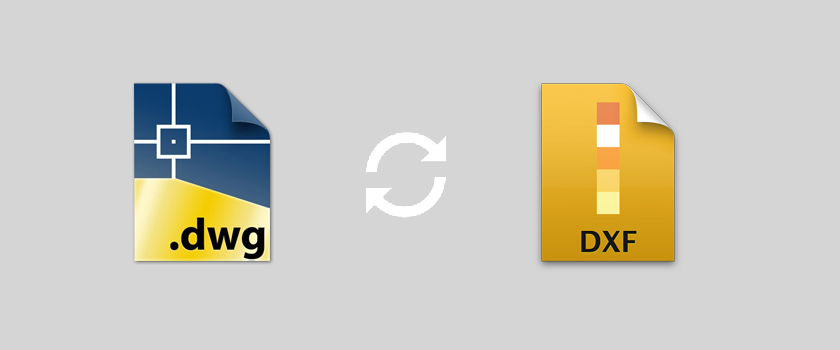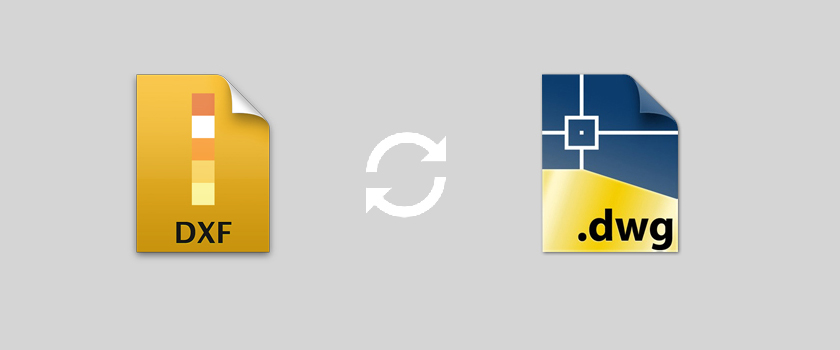Turkey is the only country in the world that is included in both the continents of Asia and Europe. If you look at the history of Turkey, you will be amazed to know it has acted as a bridge and barrier between both continents. The geography of Turkey consists of Dardanelles which is the sea of Marmara and the Bosporus. It separates Europe and Asia. The capital of Turkey is Ankara. Istanbul is the largest global city and economic hub of Turkey. It is native to an estimated population of 80.8 million. According to article 42, the Turkish language is the official language of the country. Moreover, according to this article, the teaching of other languages as a mother tongue is prohibited. The Turkish language is considered one of the most important languages in the world. Therefore, it is widely spoken and is ranked ahead of important languages of the world like French, German and Italian. You will be amazed to know that 250 billion people speak Turkish in 12 countries. Moreover, it is the 12th most spoken language around the globe.
At present, 75 million Turk people speak the Turkish language around the globe. It is an important language because it helps in the coordination between two continents like Europe and Asia. Initially, it was the language of an empire. If we see the previous history of the Turkish language then we will come to know that Europe is much influenced by this language. Moreover, some countries are also influenced by Turkish-speaking people. Do you want to know the origin of the official language of Turkey? How did it originate? What factors contributed to its evolution?
In Mongolia, 3000 years ago, people used to speak Proto-Turkic which is influenced by Chinese people. During the Middle Ages, the Turkish people with the expansion of Turkic Seljuk expansion moved westward. Therefore, the Turkish people got influenced by Persian and Arabic. During the era of the Ottoman Empire, Turkish people adopted French vocabulary, and with the changes in Ataturk, Turkish people got out of the influence of Arabic and Persian language and developed into the Turkish language that we speak today.
Turkey is a diverse country. Therefore, apart from the official language, the other languages spoken in Turkey are Kurdish, English, German, and Arabic language. Moreover, there are 30 ethnic languages that people from different communities speak in Turkey. Turkish people speak the Turkish language as a mother tongue. The second most spoken language is Kurdish. On the Third number comes the Arabic language. Moreover, people also speak German and English as secondary languages in Turkey. Due to cultural similarities, Turkish, Kurdish, and Arabic have taken many loanwords from each other. However, people that speak these languages can’t understand each other because they are not mutually intelligible.
Kurdish is from a family of Indo-European language and is classified as an Iranian language. Kurdish is also called Kurmanji. It is a part of the Northern dialect and it is mostly spoken in southeast Turkey. Lingually the Kurdish language is more mutually intelligible with European languages than Turkish and Arabic. Approximately 15% to 20% of the population of Turkey speak this language. However, the next Turkish generation is not aware of this language. According to the BBC, 6% of the Turkish population speaks Kurdish as their mother tongue. The two important dialects of the Kurdish language are Zaza and Northern Kurdish. The history of the Kurdish language is back from the 16th century. During that time the famous Kurdish poet Ahmad Khani wrote the dialects in Karanji.
Approximately 2 million people that have Arabic ancestry in Turkey speak the Arabic language. Moreover,1.2% of native Turkish speak this language. At present, Arabic speakers in Turkey have increased because many Syrian refugees come to Turkey after the Syrian Civil war. Many Turkish-Arab communities are residing in Istanbul and other main cities of south and southeast Turkey. Turkish people that are Arabic are mostly Muslims. They live around the south-eastern borders that are attached to Iraq and Syria. In the 11th century, the Turkish tribes came to Anatolia from Central Asia and these tribes are very close to the Arabs of Syria. Arabic language in Turkey is greatly impacted by Turkification which is the process of culturte and language shift from the era of the Ottoman Empire. Thus, the majority of people speak Arabic besides Turkish in Turkey.
According to the EFI survey that is conducted on 2 million people every year, that 17 million Turkish population speaks English as a secondary language in Turkey. However, proficiency in the English language is low. People of Turkey cannot speak English fluently as compared to the people of Japan and Brazil. Moreover, they can speak better English than Mexican people. Turkish schools are teaching English. Therefore, the new generation has a high number of English speakers. However, Turkish people find difficulty in learning the English language. Turkey ranked in 69th position out of 100 countries in EFI results. This shows that it has a low ranking among European countries in English proficiency whereas it has a high ranking in Asian countries. You will find English speakers in cities that are also tourist spots like Ankara, Bursa, Mersin, Izmir, Eskisehir, and Istanbul. Therefore, you will not face any communication barrier. On the contrary, if you are in other cities, you have to use sign language to communicate.
Zaza is an Indo-European language and Zaza’s people living in eastern Turkey speak this language. It is a part of the Zaza-Gorani language which is the north-western group of the Iranian branch. The Irish Zaza originated as a detractive language and many Zazas call it Dimli. Zaza is mutually intelligible with Tati, Mazandarani, Talysh, Gilaki, Gorani, and Semnani languages. Moreover, this language is greatly impacted by Kurdish because these languages interact with each other for centuries. Moreover, the Zaza-speakers are known as ethnic Kurds. This language is written using Arabic script but modern linguists write it with Latin alphabet. Moreover, some Turkish radio also broadcasts in this language. It is spoken by approximately 1 million speakers. Moreover, this language has three major dialects that came into existence from northern Iran and the Caspian Sea.
Gagauz is a Turkic language. People living in Gagauz, Moldova, Russia, Ukraine, and Turkey speak this language. This language is from the Oghuz family of Turk languages with other languages like Turkish, Turkmen, and Azerbaijani. It has two main dialects that are Maritime Gagauzi and Bulgar Gagauzia.
The Ladino language is also called Judeo-Spanish, Sephardi, and Judesmo. This language is spoken by 13,000 people in Turkey. The Treaty of Lausanne, signed in 1923 preserved the rights of this language along with Armenian and Greek, and Jews This shows that in Turkey, these languages are given more recognition than other minorities. Even though Ladino, Armenian and Greek have a smaller number of speakers than Arabic and Kurmanji. This language originated from the Castilian Spanish language in Spain. When Jews were expelled out of the country in 1942, they took Ladino Language with them. With time, it is influenced by Aramaic, Arabic, Turkish, and Greek.
One other language that is protected by the treaty of Lausanne is Armenian. Approximately 61,000 people speak the Armenian language. However, the existence of this language is at stake. A large number of Armenian speakers live in Istanbul around 50,000. It is Turkey's largest city and is native to 15 million people. The Armenian language is not recognized in Turkey for years due to ethnic killing in World War 1. The Armenian language is not the distinguished language in Turkey. Therefore, president Recep Tayyip Erdogan tweeted in the Armenian language in the 2019 elections to support this language.
The Greek language also enjoys legal protection in Turkey as it is also included in the treaty of Lausanne. At present, Turkey is native to 10,000 Greek speakers. The main dialects spoken in Greek are Pontic Greek and Standard Modern Greek. Pontic Greek is spoken by 5,000 people whereas standard modern Greek is spoken by 3600 people.
If you are planning to visit Turkey then it is recommended to get a knowhow of the official language of the country, Turkish. It will enable you to mitigate a communication barrier and you can enjoy your entire trip without any problem. In the tourist spots of the country, you will come across some people that can speak English. However, if you can use some words of Turkish language in your communication then you can easily impress Turkish people.
The languages spoken in Turkey reflect the rich heritage and history of Turks. The use of official language has reduced the use of other languages. However Turkish government is preserving the other languages with the help of the treaty of Lausanne. Turkey is one of the most beautiful countries in the world with unique languages. Are you ready to explore Turkey's rich heritage with its unique languages?

dwg: It means a drawing file save format created by AutoCAD, and now has been the standard format of 2D
Read More
dwg: It means a drawing file save format created by AutoCAD, and now has been the standard format of 2D
Read More
Mars Translation can help you extract the texts in a DWG file and convert them into a Word file so
Read More
dwg: It means a drawing file save format created by AutoCAD, and now has been the standard format of 2D
Read More
dwg: It means a drawing file save format created by AutoCAD, and now has been the standard format of 2D
Read More
MarsTranslation can help you extract the texts in a DWG file and convert them into a XML file so that
Read More
If you are a designer you are bound to find yourself in situations when you have to convert your DWG
Read More
dwg: It means a drawing file save format created by AutoCAD, and now has been the standard format of 2D
Read More
MarsTranslation can help you extract the texts in a DWG file and convert them into a Word file so that
Read More


Document Translation
Professional document translation by native expertsApp Localization
Get more downloads by adapting your app for different target marketsVideo Translation
Multilingual translation and subtitling servicesWebsite Localization
Adapt your website into multiple contexts for global reachSoftware Localization
Adapt your software for global usersGame Localization
Reach new players with localized gameplayMTPE
Refine AI translations for natural fluencyBusiness Translation
Professional translation for business documents and websitesDTP & File Conversion
Professional DTP and File conversion, supporting multiple file formatsProofreading
Perfect your content with expert review© Copyright 2026 MarsTranslation